If you buy something through a link in our posts, we may get a small share of the sale.
After putting all that time and effort into making your home brew beer, you want to be sure how long it can be left in storage. Nobody wants the risk of putting in all that work and waiting for months only to open a ruined beer.
Contents
How Long Does Home Brew Beer Last?
When stored properly, home brew beer should last somewhere between six to 12 months. Generally, the flavor of home brew beer improves within the first two months of bottling, then it stabilizes for several months and begins to degrade after a year.
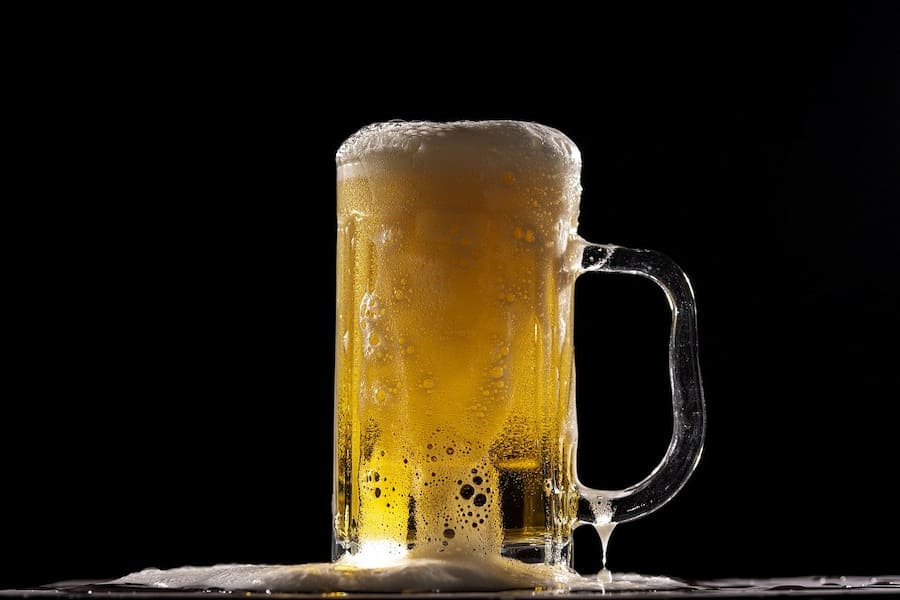
Beer stored in bottles tends to oxidize slowly, losing its flavor and carbonation over time because the seal on bottles is not totally airtight. The key is knowing when the flavor is at its peak. That period is the best time to enjoy your home brew beer.
How Long Does Home Brew Beer Last Once Bottled?
There are different shelf lives for home brew beer depending on the type of beer you are brewing. On average, the shelf life of home brew beer ranges between six to 12 months. A number of factors, like the volume of alcohol in the beer, can limit or expand this timeframe.
Homebrew beers that have high alcohol by volume (ABV), like lambics, stouts, and double IPAs, can last for a really long time. Beers with lower alcohol by volume (ABV), like some ales, have a shelf life of only a few months.
The stronger the alcohol content in home brew beer, the longer it typically lasts because of the extended fermentation period. Keep in mind that even after the expiration date, your home brew beer is still safe to drink as long as it is not contaminated. It may just begin to taste flat or stale.
How Long Does Home Brew Beer Last in Plastic Bottles?
This may be uncommon but there are some homebrewers who may choose to bottle their home brew beer using plastic bottles as opposed to conventional glass bottles or Growlers. But does home brew beer stored in these bottles last as long as those stored in glass bottles?
Well, the answer to that is no. This is because there is a very high chance of the home brew beer reacting with the chemicals in the plastic bottle after a while. So, you should not store your home brew beer for more than two months if you choose to use plastic bottles.
Asides from the shorter storage timeframe, using plastic bottles may prove wasteful in the long run. This is because they are usually harder to clean than glass bottles. This means there is a higher tendency that you buy new bottles to avoid this stress. This can affect the environment and your wallet.
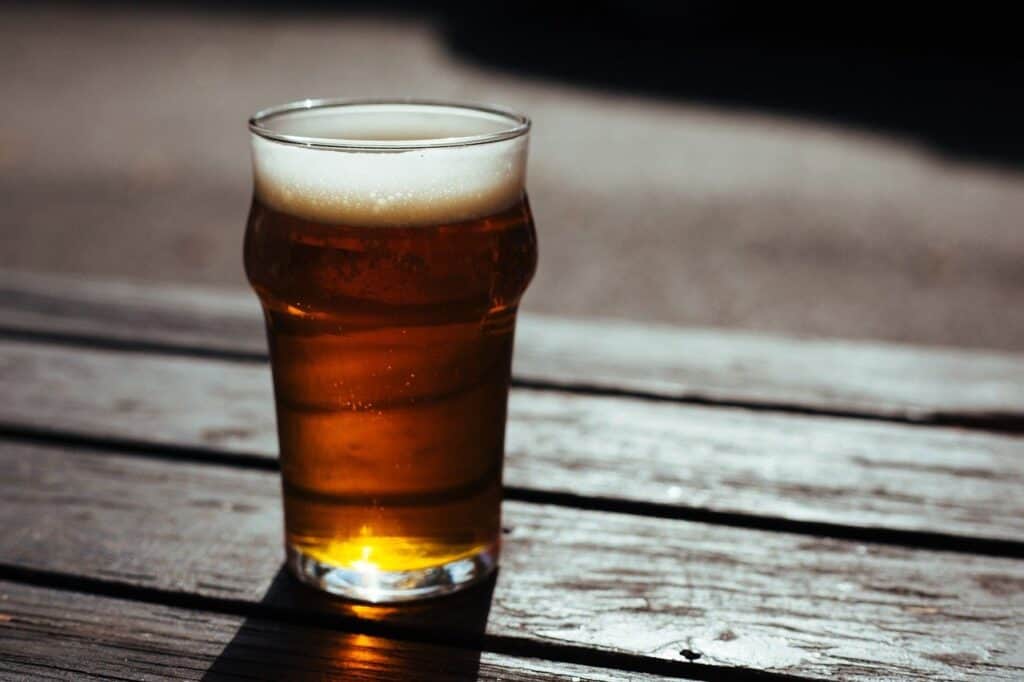
Does Home Brew Beer Improve With Age?
When it comes to home brew beer, time is your friend. So yes, home brew beer actually improves with age. This is why a lot of homebrewers usually bottle-condition their beer. It gives the home brew beer more time to sit while enhancing the flavor.
Bottle conditioning is a process that helps to improve the carbonation and develop the flavor profile of home brew beer. It is carried out by adding wort that has begun to ferment or yeast suspension in a sugar solution into the beer after bottling, right before they are sealed.
The process of bottle conditioning can last for as long as a few weeks to as long as several months depending on the type of beer you are brewing. Here is a table showing different types of home brew beers and how long their carbonation and bottle conditioning lasts.
| Type of Beer | Duration of Carbonation | Duration of Bottle Conditioning |
| Pale Ale | 2 to 3 weeks | No additional time |
| Stout | 2 to 3 weeks | 3 to about 4 months |
| Imperial Stout | Over 4 weeks | 4 to about 6 months |
| IPA | 2 to 3 weeks | No additional time |
| Imperial IPA | Over 4 weeks | No additional time |
| Hefeweizen | 2 to 3 weeks | No additional time |
| Porter | 2 to 3 weeks | 3 to about 4 months |
| Saison | 2 to 3 weeks | No additional time |
| Lager | 2 to 3 weeks | 3 to about 4 weeks |
| Kolsch | 2 to 3 weeks | No additional time |
| Belgian Tripel | Over 4 weeks | 4 to about 6 months |
Yeast Autolysis
When bottling your home brew beer, there is usually a little amount of yeast sediment that remains in the beer, unless it is filtered. This yeast sediment settles at the bottom of the bottle and is not a reason for concern except it is a lot.
On average, when it settles, it should not be thicker than 1mm if possible. Having a lot of yeast sediment in your home brew beer after bottling can pose a problem. The yeast will die eventually and begin to break down inside the beer. This process is called yeast autolysis and is fine in little quantities.
In large quantities, it can cause your home brew beer to develop a soy sauce or marmite flavor which is not exactly a nice flavor to have in beer. This process occurs after several months, so it does not affect fresh home brew beer.
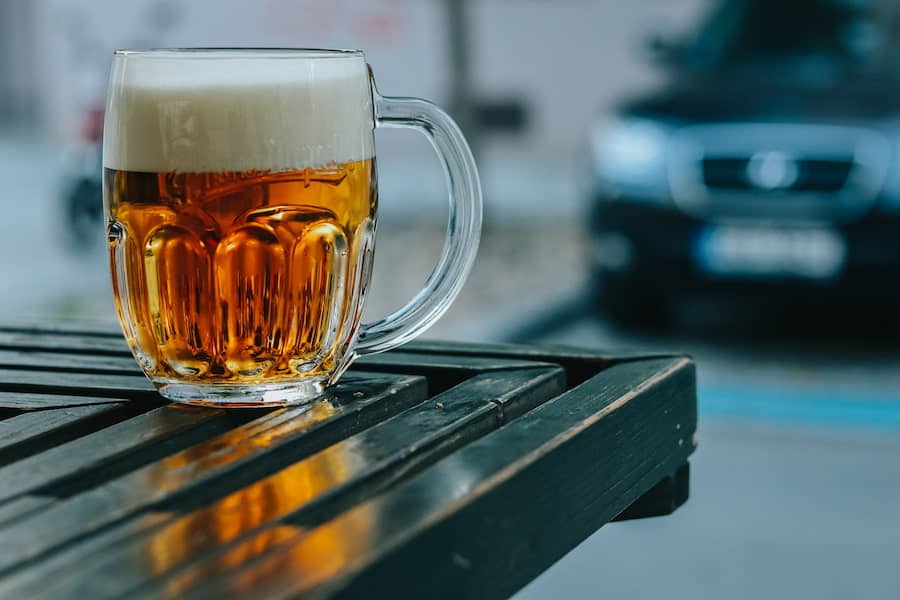
Does Home Brew Beer Go Bad?
Generally speaking, beer does not spoil as a result of aging. This applies to home brew beer as well. However, there are certain factors that can cause home brew beer to lose its crispy flavor and go bad. Some of these factors include:
- Light
- Bacteria
- Oxygen
Light
Light can cause your home brew beer to go bad because of the UV rays it contains. Direct light including sunlight can affect your home brew beer’s aroma, flavor, and taste. You can prevent this from happening by using dark opaque bottles instead of clear ones to store your home brew beer.
Bacteria
If bacteria gets into your home brew beer, possibly because of improper cooling, it can cause the beer to go bad. This is very unlikely to happen because the alcoholic content of the beer does not support the growth of bacteria.
Oxygen
The process of oxidation occurs when your home brew beer is exposed to oxygen. Oxygen breaks down the chemical components of your home brew beer. This can cause the beer to gradually lose its taste and flavor and become stale.
Bottled beer is particularly at the risk of oxidation than canned beer. This is because the caps used in sealing bottled beers are not completely airtight. So oxygen sips into the bottle over time, leading to a breakdown of the chemicals in your home brew beer.
As mentioned earlier, your home brew beer is very unlikely to go bad. What is likely to happen, however, is the beer losing its taste and flavor. Drinking your home brew in this state can cause some stomach aches but it cannot make you sick or kill you.
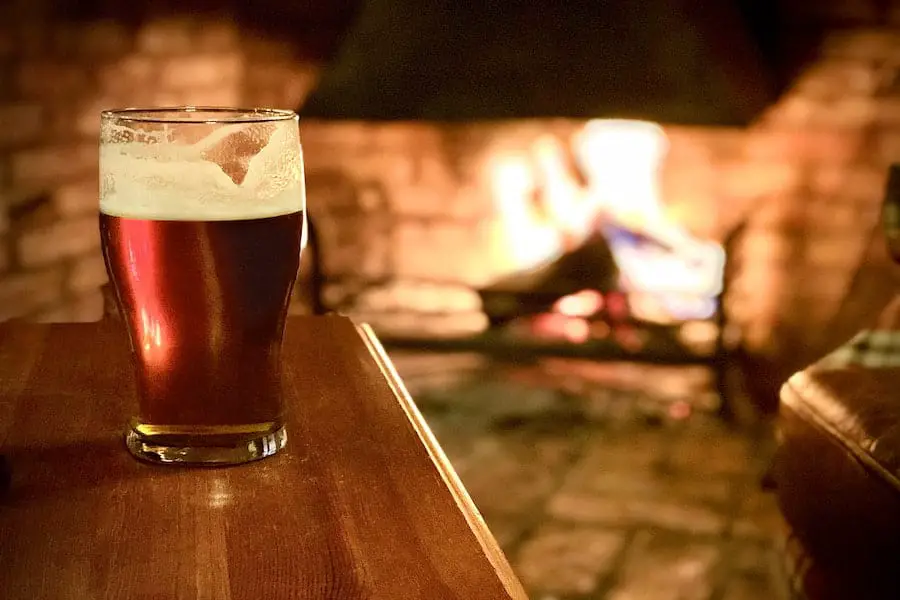
Storage Tips
You are probably wondering the steps you should take to store your home brew beer properly to ensure that it lasts long while retaining that crispy, rich taste and flavor that you love. Here are a few storage tips to help you get started.
Store at the Right Temperature
The most appropriate place to store your home brew beer is anywhere that is dark and cool. The ideal temperature for your home brew beer will vary depending on the type of beer. For example, here are some of the preferable temperatures for some types of beer:
- Pilsners and Lager – 44.6 to 50 ºF
- IPAs and Stouts – 50 to 53.6 ºF
- Imperial Stouts and Double IPAs – 53.6 to 60.8 ºF
Keep in mind that the higher the ABV of the beer, the more leeway you can exercise in terms of temperature. And if you are in doubt, you can always keep them in the refrigerator.
Keep Bottles Upright
Unlike wines, beers should not be stored laying on their sides. You should store your homebrew beer in an upright position with the caps up. This is for two key reasons. The first is to reduce the surface area of the beer that touches the air left in the bottle. This helps to reduce the rate of oxidation.
The second is to prevent possible yeast agitation that will arise from turning the bottles when you finally have to drink the beer. Yeast agitation can easily ruin the taste of your home brew beer.
Avoid Disturbing Your Bottles
Ensure you keep your home brew beer in the same location and position as much as you can during the period of storage. This is also to prevent yeast agitation since the yeast is required for bottle conditioning and proper maintenance of the flavor of your home brew beer during storage.
Store Away From Light
UV light from direct light sources and the sun can affect the taste and flavor of your home brew beer. It can also cause your home brew beer to skunk. This is when your beer gives off a putrid smell because of a chemical reaction caused by exposure to UV light.
For these reasons, store your home brew beer in a dark location with as little as possible exposure to UV light. You should also use dark opaque bottles for storage instead of clear bottles.
Avoid High Humidity
Avoid storing your home brew beer in places with high levels of humidity. To ensure your home brew beer ages properly and retains its flavor, store them at an ideal humidity of 50% to 70%. Anything higher than this can lead to the formation of mold in your beer.
It could also cause the caps used in sealing your bottles to rust in the beer. These risks are higher even with corked bottles and plastic bottles. So it is safer to store your home brew beer in places with low humidity.
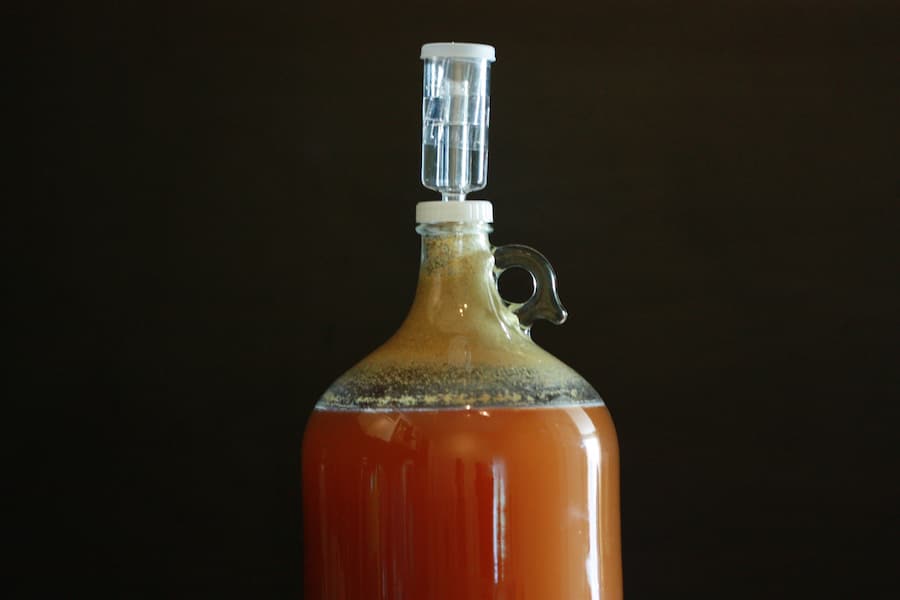
Related Questions
What Are the White Chunks in My Beer?
The white chunks you may notice in your home brew beer are sediments from yeast and protein particles that formed during the brewing process. This happens when you choose not to filter the beer before bottling. It can also come from bottle conditioning.
Does Old Beer Make You Sick?
Old beer rarely makes you sick, it may only cause you a slight stomach ache. When beer gets old, it does not spoil. It only loses its taste and flavor and it begins to taste stale and off like cardboard.
Conclusion
Putting all of these into consideration, you can ensure your home brew beer lasts long. Ultimately, you determine how long your home brew beer lasts. It is also a good idea to read good homebrew books to gain more knowledge.
It will remain good as long as you consider it to be good. However, to enjoy the best flavor and rich taste from your home brew beer, you should age just up to the timeframe when the flavor is at its best.

